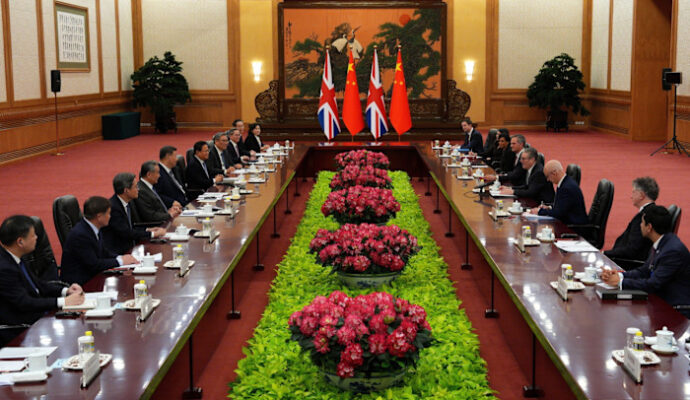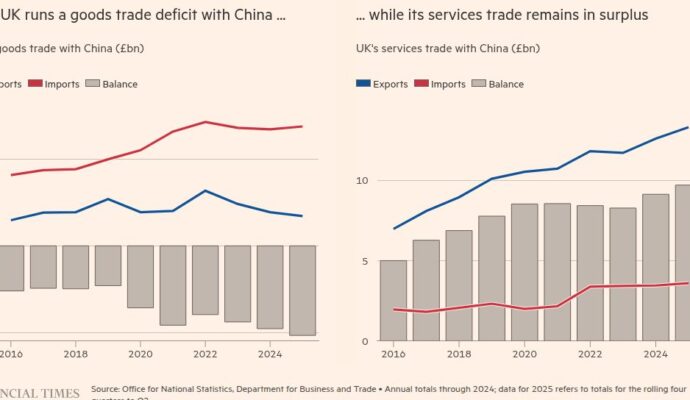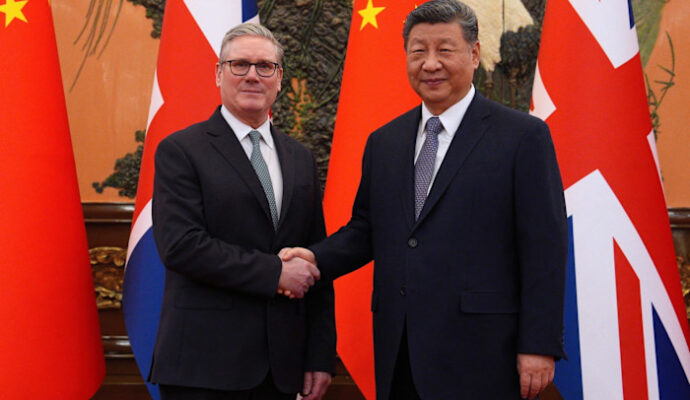Unlock the White House Watch newsletter for free
Your guide to what Trump’s second term means for Washington, business and the world
Joseph Nye, one of the world’s foremost thinkers and practitioners in the field of international relations, who coined the term “soft power”, has died aged 88.
In a career spanning six decades, Nye made extensive contributions to political scholarship and served in two US presidential administrations, leading nuclear non-proliferation efforts and pushing for closer ties with Japan.
Most notably, he came up with the concept of “soft power” to describe a nation’s ability to get what it wanted “through attraction, rather than coercion or payment” — an idea he said US President Donald Trump had failed to grasp.
“Few contributed as much to our intellectual capital, our understanding of the world and America’s place in it,” said Antony Blinken, secretary of state under Joe Biden.
Nye’s career oscillated between theoretical and policymaking roles, which colleagues said gave him a unique insight into the mechanics of US foreign policy.
“I guess the big thing about Joe was, to me, he is the perfect academic who is able to do the highly theoretical international relations thinking and then turn it into policy,” said Dennis Wilder, a former CIA China expert and top White House Asia adviser to George W Bush.
Nye graduated with a PhD from Harvard in 1964 and joined the faculty of the university, where he was one of the founding faculty members of the modern iteration of the university’s Kennedy School of Government, a conveyor belt of leaders and policymakers.
Alongside fellow academic Robert Keohane, Nye put forward the theory of “complex interdependence”, arguing countries can become so economically entwined that military force ceases to be the most important factor between them.
President Jimmy Carter put him in charge of his administration’s efforts on nuclear non-proliferation, a subject he continued to work on as head of Harvard’s Belfer Center, a research hub, from 1989 to 1993.
Nye returned to government under President Bill Clinton, who appointed him chair of the National Intelligence Council and an assistant secretary of defence, tasked with developing strategy on US security relations with the world at large — and in particular Asia. He was a leading advocate of the US-Japanese alliance as Chinese power in the region grew.
Randall Schriver, chair of the Institute for Indo-Pacific Security Affairs, praised Nye’s “innumerable contributions to the national security of the United States”. He said Washington’s alliance with Tokyo “has continued to flourish in no small part due to [Nye’s] efforts” and those of Richard Armitage, another prominent US diplomat, who died last month.
Nye went on to serve for almost a decade as dean of the Harvard Kennedy School. Jeremy Weinstein, the school’s current dean, described him as “a singular scholar, a visionary dean, and a committed mentor”.
“Even in a place as steeped in history as HKS, Joe stands out as a transformational figure,” Weinstein said. “He helped build this institution into what it is today, while transforming the field of international relations.”
In recent years, Nye was a staunch critic of Trump, who he argued did not understand the value of soft power. “His background in New York real estate gave him a truncated view of power limited to coercion and transactions”, he wrote in a recent Financial Times essay.
“True realism does not neglect liberal values or soft power. But extreme narcissists such as Trump are not true realists, and American soft power will have a hard time during the next four years,” Nye wrote.
His death — and that of Armitage — comes as the US struggles with a dwindling pool of Asia experts against a backdrop of rising tensions in the Indo-Pacific.
“We are definitely experiencing a shortage of people steeped in Asian culture,” Wilder said. “And it’s going to have a long-term negative effect.”


